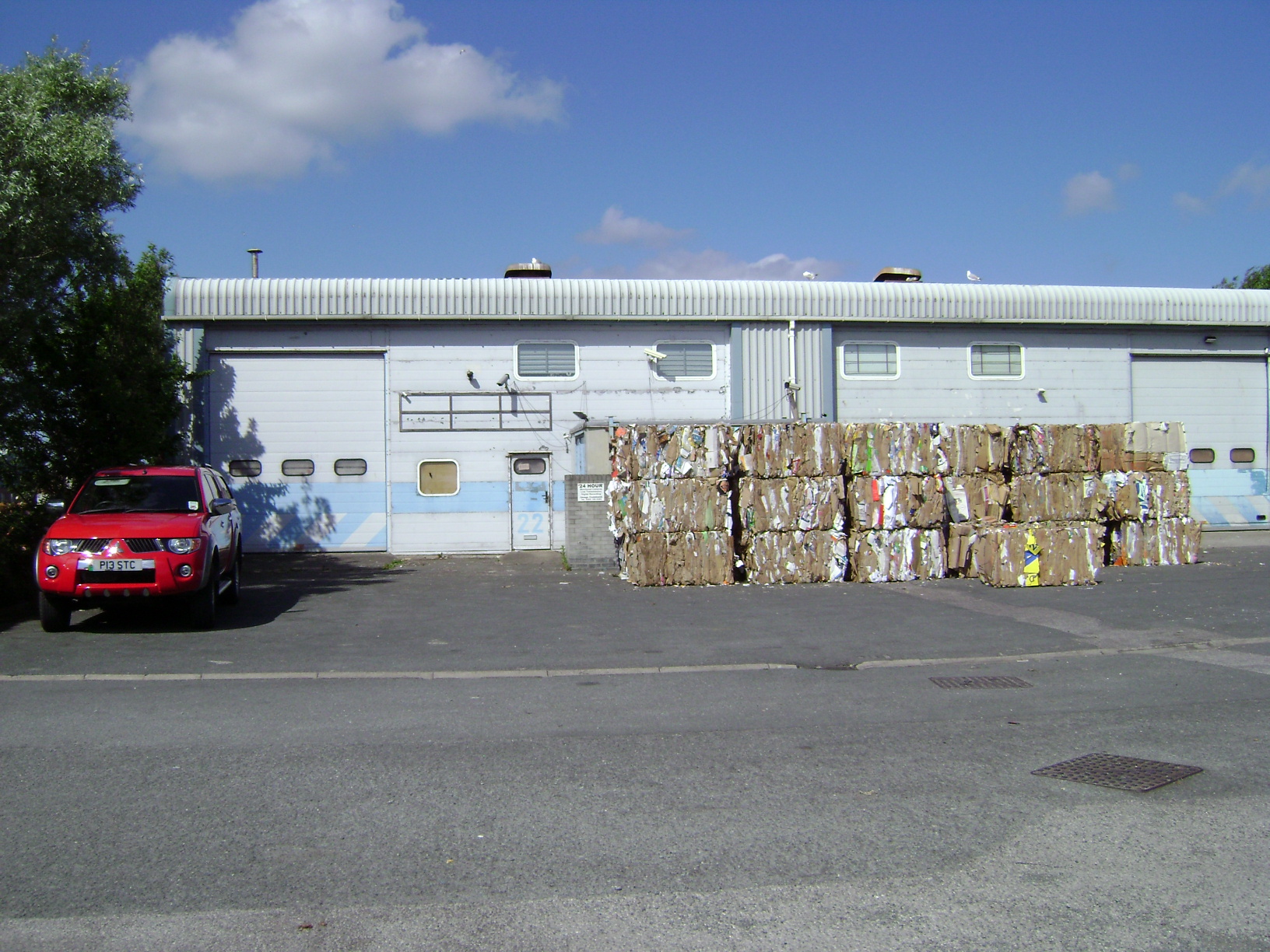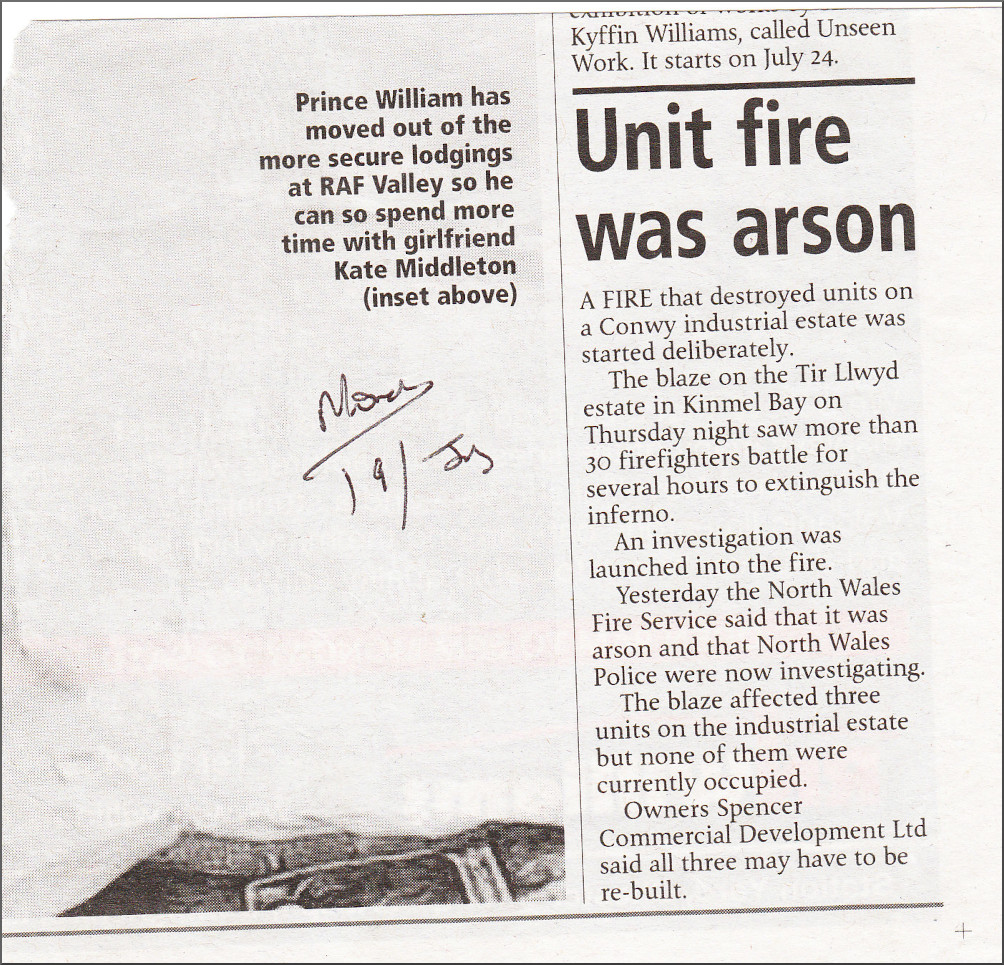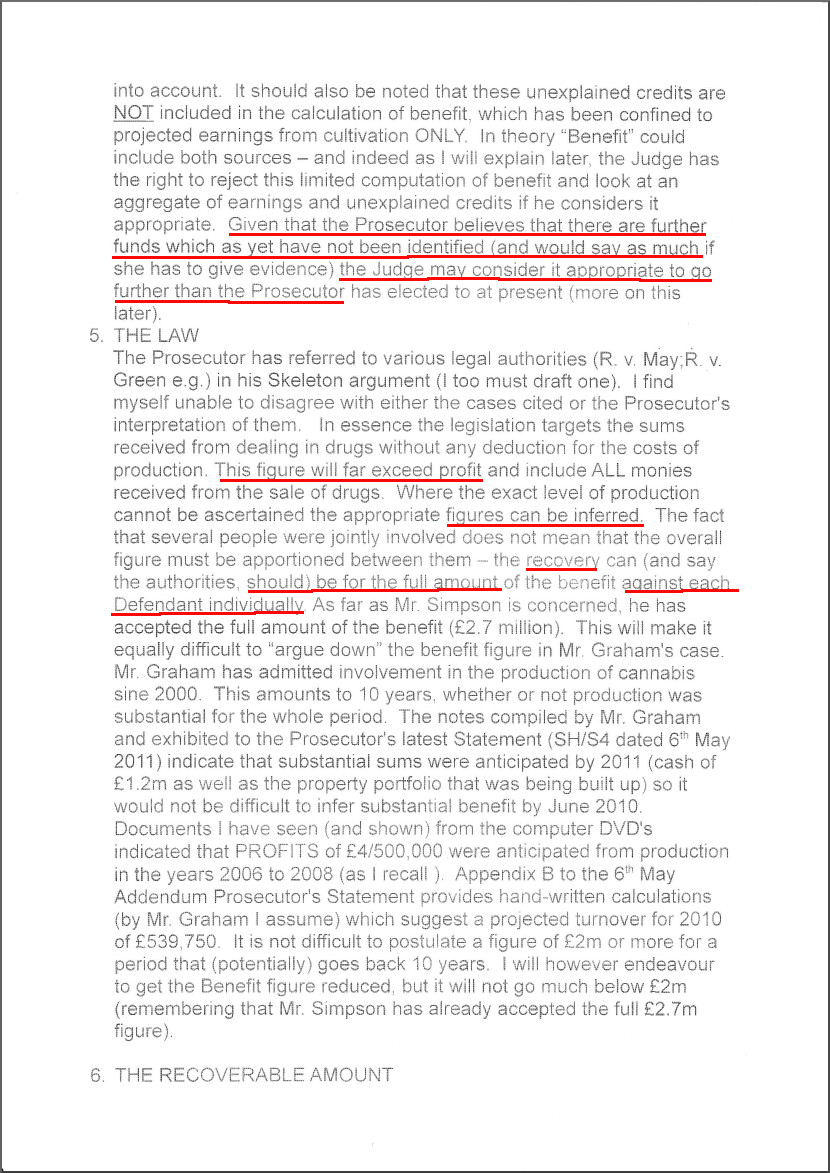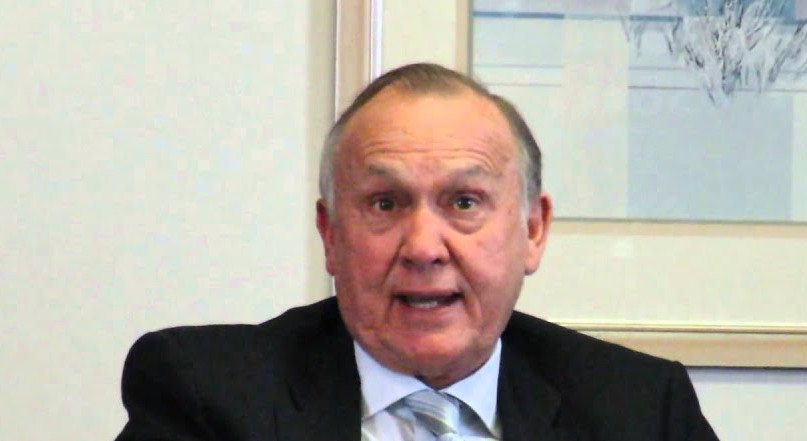
Inference, lies and dishonesty
POCA - Inference, lies and dishonesty

Two of the three warehouses burned down with the conivence of the police. Units 23 and 24.

We quietly grew our cannabis for 10 years in our tin sheds. The police came along, ransacked them, disabled the burglar alarms and the security cameras, failed to lock the inner security gates, and hours after they left three attempts were made to burn them down. Why? Could it be because, before they took me away these units contained over £60,000 worth of equipment — all unrelated to cannabis growing. When, two years later, I finally got my hands on the video recording equipment the police had seized, all the archived security images, both inside and outside the units, had been deleted. Why?

In my eBook Cannabis Man I explain how very significant amounts or money and many valuable assets went missing during the police activity. The CPS prosecutor, on the basis of no evidence, suspected other funds had been hidden. My (first) barrister, slavishly following the prosecutor's argument, accused my of having a secret bank account.
One of the many problems with POCA is that it directs the police to focus on money above all else. The police, as an organisation, are more than anxious to go along with this, because they get to keep half of the money they find. Furthermore, the law states that any money found need not be linked to any crime. All that counts is the money.
Having been indoctrinated in this version of the law, unsurprisingly, individual police officers see nothing wrong in following the lead set by their superiors. Namely, that any and all money encountered in an investigation is theirs for the taking.
Speaking to one major Vietnamese drug importer in prison, he told me that it was a common occurence for police officers to pocket any money they found. That was fine by him because, on paper, it made his earnings from the drugs seem less.
No one is safe from legalised theft

A billionaire who was discovered leaving the country with nearly £700,000 in his luggage has won back the cash from the UK Border Agency.
Dr Christoffel Wiese, South Africa's third richest man, was carrying £674,920 in used bank notes in his suitcases at London City Airport as he checked in for a flight to Luxembourg.
Officials seized the supermarket baron's cash and a district judge later ordered its forfeiture, saying it was probably derived from criminal money laundering.
However, the High Court has now ordered UKBA to hand back the money, ruling it 'unlikely' such a fabulously wealthy man would muddy his hands with anything of the sort.
Dr Wiese - who is aged in his seventies and worth an estimated £3billion - is the largest single shareholder in Africa's Shoprite supermarket chain and has investments in mining and wine companies, according to Forbes.
He was stopped by border officers in April 2009 when a security check found £120,000 in his hand luggage and a further search unearthed more than £500,000 in two bags he had checked into the hold, the judge said.
The judge refused to order the agency to pay Dr Wiese's legal costs, finding that he 'brought this state of affairs on himself'.


